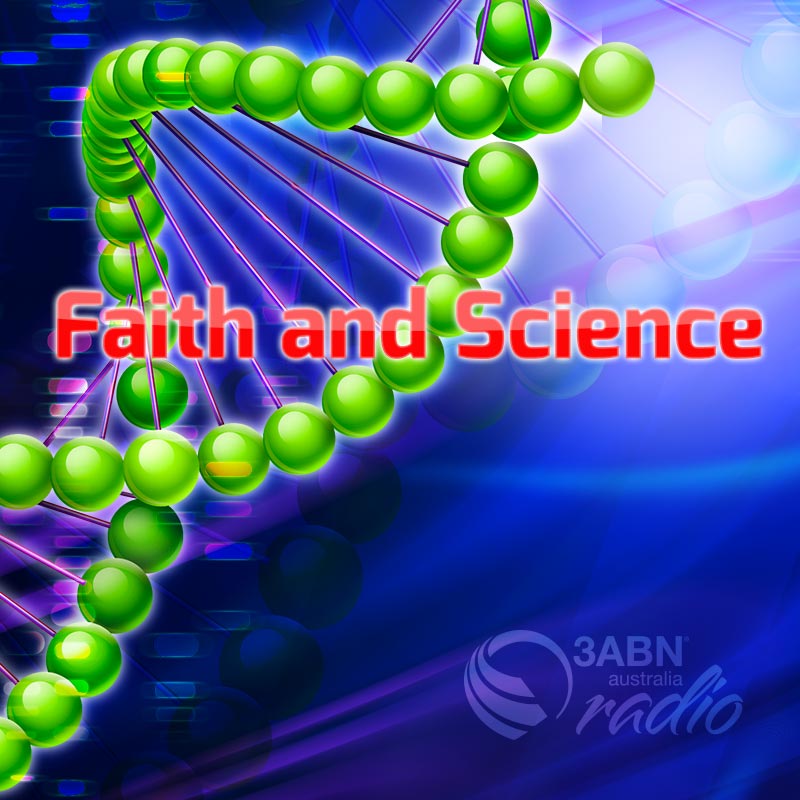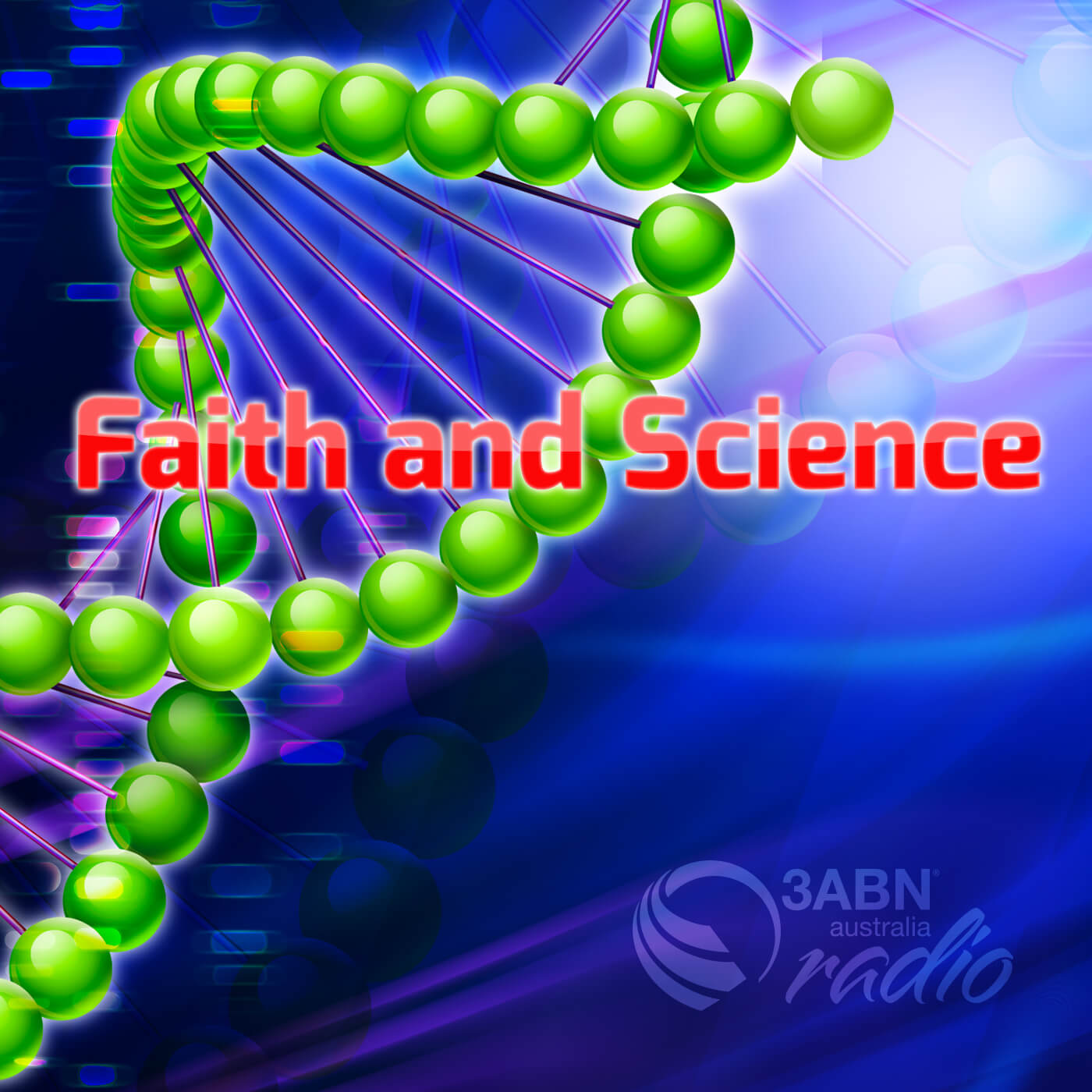Episode Transcript
Welcome to faith and science. I'm Doctor John Ashton. Often people talk and read about, particularly in our secular times and the secular culture that we live in, particularly in Australia today, that, well, Christianity is just one of different religions.
If people want to believe that, they can, we have to be fair with all the different other religions, Hinduism and Buddhism and so forth. But I think one of the things that people don't realise is the overwhelming evidence that the Bible account is a true and factual account. So we have in the Bible, of course, eyewitness accounts of the miracles that Jesus did of his resurrection and ascension.
We have testimonies of those miracles. We have the historical prophecies that were written well before their time, particularly the prophecies of Daniel. We have the historical accounts, secular historical accounts of history, that confirm the biblical historical account.
We also have the major issues with. There's still no explanation for how evolution can occur. It was interesting, just last week, I saw a headline in the news that scientists claim that they've discovered the original ancestor.
Of course, in the article jokingly said, well, no, it wasn't Adam, it was some amoeba type organism billions of years ago. And it went on about this claim discovery. But I noticed right at the end of the article, it said, scientists are still trying to work out the mechanism of how this earliest life form could have evolved into all the other life forms and, of course, modern humans.
And of course, we know, we have overwhelming evidence that I've talked about many times on this programme, that evolution is absolutely impossible. We have also a massive amount of evidence that the earth, particularly the surface of the earth, life on earth, can't be that old due to the increased mutations that we know occurred, that, deleterious to the different genetic codes, the codes are so complex, they can't evolve by random mutations. We have evidence of massive erosion that would occur, that would erode the continents away in about 10 million years and so forth.
So there's so much evidence for the biblical account and even the biblical ages. But one of the other things that people often talk to me about, well, how do we know that creation occurred in the seven days, in six days of creation, day of rest? And it's interesting, when we read, of course, the ten commandment, when the ten commandments that God gave, when we read the fourth commandment, it reads, remember the Sabbath day to keep it holy. Six days shalt thou labour and do all thy work.
But the 7th day is the Sabbath of the Lord thy God. In it, thou shalt not do any work, thou or thy son, nor thy daughter, thou, nor thy son, nor thy daughter, nor thy manservant, nor thy maidservant, nor thy cattle, nor the stranger was in thy gates. For in six days the Lord made heaven and earth, the sea and all that is in them, and rested the 7th day, wherefore the Lord blessed the Sabbath day and hallowed it.
And so there we had this commandment. And again, obviously, the Israelites at that time knew about the Sabbath, because the commandment was, remember the Sabbath day, to keep it holy, thou shalt not do any work. Now, this is very interesting, because in the past 50 years or so, scientists have discovered a number of seven day cycles.
I was reading about recently about some of these in a book by Doctor Neil Nedley, the lost Art of thinking. And, well, I found it quite interesting because I've spoken on the topic of seven day cycles before in nature. But he drew my attention to some of the articles, actually, that I wasn't aware of.
And one of those in particular was a book that was published by the University of Chicago Press back in 1985 by E. Zavabel called the 7th day cycle or the seven day cycle. And it's interesting the number of papers, of course, that have been research that has really been done since that time in terms of medical research.
And I'll just look at some of these. Back in 1990, there was a paper published in the journal of Personality and Social Psychology called individual differences in entrainment of mood to the weekly calendar. Another one was looking at the circapstan rhythm, which is the 7th day cycle.
Circoceptin, rather, rhythm. And it was an article published in Scripture, Medica. And it was the circoceptum rhythm in blood pressure and heart rate in newborns, which I thought was very interesting.
So here these babies have this seven day cycle in their terms of their blood pressure and heart rate rhythms. Another study that was published by other authors was circadian and circoceptin, components of blood pressure and heart rate during depression. So these are studies that were done on different people.
So it was another one that was published related to weekly and seasonal variations in cardiac mortality, blood pressure, catulocolabine, excretion. And that was published in Chronobiology International in 1991 as well. So there's another one I noticed here was the circadian and circosepton free day running psychologic rhythms of a woman in social isolation.
So it's interesting. Another one, a little bit earlier that was published was again the circoceptum rhythm, aspects of rejection in treated patients with kidney transplant. And that was published in Chronopharmacology and Chrono Therapeutics, the journal year of in 1981.
So it's quite interesting to read these papers that are supporting this cycle. So we can see that, you know, the weekly cycle has been associated with, or the seven day cycle with heart rates, natural hormones, and the natural hormones in breastworks, swellings after surgery, rejection of transplant organs, and so forth. And as I mentioned in one of my earlier talks, we all know that these seven day cycles are also found in animals and even in plants, such as algae, for example.
So this is very interesting, because when we look at the origin of a seven day cycle, the weekly cycle that we have of working six days, having a day of rest, that is, in so many cultures. Matter of fact, the word for Sabbath is often the word for Saturday in some languages around the world. And so this is a very interesting cycle.
It isn't related to any observable cycle in nature. So we have, like, we've got the daily circadian rhythms that also affect a number of things, such as, you know, blood pressure and heart rate, and all these sort of things are affected. And we know this is the rotation of the earth relative to the sun.
And then, of course, we have annual cycles and we have lunar cycles and so forth, road to the moon, but there's nothing that is associated with the seven day cycle. And so it's interesting that this whole concept of a seven day of rest seems to have a lot of advantages. It's interesting.
Of course, I think I mentioned this before, too. During the french revolution, they attempted to do away with the seven day cycle because that was associated with worship. It's been associated with, you know, the worship of God, the christian church and so forth.
And so they changed it to a ten day week, but they thought it would increase productivity and so forth. But the result was quite the opposite. It resulted in an alarming array of physical problems that came to the surface.
And it's interesting that during this time, the french mathematician Laplace, who, a brilliant mathematician, one of the inventors of calculus, as I recall, he was a very strong Christian, and he convinced the french government to return to the seven day week because of the many problems that they had. It's fascinating, of course, and I wasn't aware of this until reading this book, that under the leadership of Joseph Stalin, the Bolsheviks attempted a five day weekend, and also tribes of the Congo also attempted to implement a four day, five day and eight day week. But none of these experiments lasted long, because our body cycles revolve around this seven day rhythm.
And it's interesting that when people have looked, and there've been scientific studies of people that observe this Sabbath rest, that observe this one day, a week of rest, that they experienced much better health conditions. It was an interesting study that I was reading about that when they did a study of people that regularly observe a weekly Sabbath, a weekly rest day, that in culture, compared to people that don't, they tended to have a higher iq and be better off within their culture socially and also enjoy better health. And of course, one of the things in this particular book, the lost Art of thinking, is the benefit of this rest in terms of the health of the frontal lobe, because that's a part of the brain that we connect with God, with spirituality and so forth, and that having this rest period leads to better mental health as well.
So that makes a lot of sense, of course. And I think this is really powerful evidence that, again, the creation account of seven day, the seven day, six days that God created, the day that God rested, set that pattern for the whole of creation. He set it for us, he set it for man.
Jesus said that the Sabbath day, the day of rest, was made for man, for mankind. And we are now observing, and as we're doing more and more medical research, understand more and more the health benefits. This is supporting this whole law that God gave us back in the beginning.
And to me, this provides again, further powerful evidence that the Bible is truly inspired by God and was given to us as an account of how to live. You've been listening to faith and science. I'm Doctor John Ashton and if you want to re listen to these programmes, of course, just Google three ABN Australia, all one word.org
dot au and click on the radio button. And remember too, if you've enjoyed these programmes, to mention the links on your social media and tell your friends that they too may come to know the evidence we have that we truly have a wonderful, loving creator God. Have a great day.
You've been listening to a production of 3ABN Australia radio.


